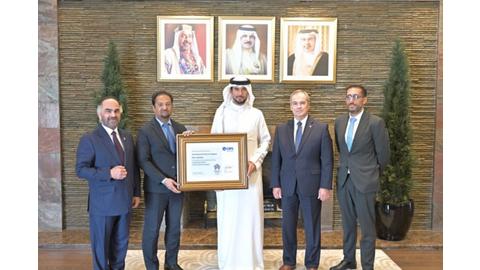Gulf executives should act quickly for companies to overcome challenges

As COVID-19 continues to rage across the world, many companies are still sitting on the side lines, undecided about how to move from strategy to action. However, according to a recent Economist Intelligence Unit report, “Regardless of where a company stands now, Gulf executives need to act quickly to move their organisations to the next level.”
Executives face many impediments, the most pressing of which is the shortage of digital skills. In addition, to accelerate integration of advanced technologies and the development of data-based products and services, the region’s digital infrastructure needs strengthening beyond what progress has already been made.
“There’s little doubt that [the digital skills shortage] is one of the biggest challenges,” said Jad Hajj, Partner & Vice President at Strategy&.
A Strategy& report estimates that the GCC states will have created approximately 1.3 million new digital jobs (700,000 of them in Saudi Arabia alone) by 2025.
“Importing talent is easier in markets such as the UAE, Qatar and Kuwait, which have large expatriate populations, but harder in countries with larger local populations, such as Saudi Arabia and Oman,”. Hajj explained. “Governments are aware of the problem, and there’s a lot of focus on this [in terms of encouraging STEM education], but this is still one of the most difficult challenges, and it’s one that’s going to take time [to resolve].”
Until then, the onus lies with companies to invest in the professional development of employees and to ensure that they are not lured away to other skills-strapped businesses, the EIU report - Innovating through tech in the GCC - supported by the Bahrain Economic Development Board noted.
“With fintech being an emerging industry in the region, it has been challenging to find experienced engineers who are ready and equipped for the work required,” says Mr
Ebwini of HyperPay. “That’s where our training and development programmes come in, to empower new engineers with new skills.”
Offering share options with the condition to stay at the company for three years has proved a successful way of keeping staff turnover low and good engineers on-side.
Reputationally positioning firms as exciting places to work will be important to attract the future workforce. Yehia Badawy, co-founder, Rain, said: “For potential recruits, being able to work on a cutting-edge technology like blockchain, underpinning an application that is actually working, is something that definitely holds some weight.”
Geographic expansion
Economic integration within the GCC could enable business expansion into other markets in the region, the EIU report said.
Many businesses are looking at regional expansion in recognition of the fact that their relatively small home markets are unlikely to support their growth ambitions for the long term—with the possible exception of those based in Saudi Arabia, by far the largest GCC market.
Increased competition from foreign multinationals is also a factor here as these companies become more adept at overcoming entry barriers to the region and local governments push through measures that make it easier for them to do so, the report said.
Though wider market access is key, it could be challenging in the current environment.
"It’s still hard work to deal with the different regulations, different visa rules, different legislative systems and different financing options across the GCC. It’s not a one-access market,” Amjad Puliyali, founder of GetBaqala said.
He also points to considerable differences in sizes of expatriate communities, dialect among Arabic speakers and customer behaviour from state to state. This means that initially attractive new target audiences can sometimes prove unpredictable in their responses.
A great deal more work is needed to achieve economic integration in the region. Progress has been slow in this regard and, since it depends on political goodwill between members, the EIU report noted.
Harmonising legislation and policies will be the cornerstone to facilitating business expansion within the region, it said.


